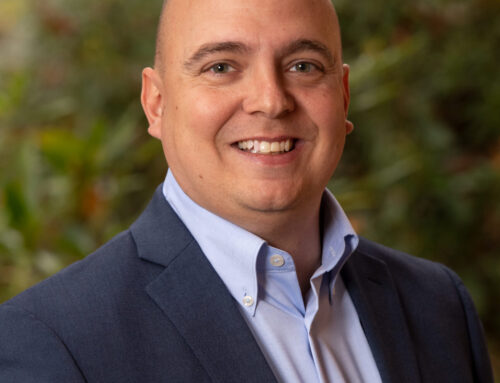SALEM — Oregon’s legislative leaders say they have a difficult session ahead of them.
With the games due to begin Feb. 1., balancing the state’s budget is top of mind.
Health care costs, education programs and rising state employee costs all mean that the state has nearly $1.8 billion less than it needs to maintain the present level of government services.
Possible changes in federal immigration and health care policies also seemed to muddy the waters as legislators discussed their agendas for 2017 with members of the press in a forum at the Oregon Capitol organized by The Associated Press.
Oregon Gov. Kate Brown, for her part, said she is focused on finding solutions to the state’s immediate deficit and emphasized improving the state’s transportation system and maintaining access to health care.
Legislators have until midnight on July 10 to do their main job, which is to balance the state’s books; Senate President Peter Courtney, D-Salem, warned this week that legislators might go into a special session after that deadline.
Gov. Kate Brown
Brown, a Democrat, said she’s focused on the next two-year budget cycle but is willing to discuss changes to stabilize the state’s revenue system for the long term.
“We are working on a number of levels,” Brown said. “I am continuing to have informal conversations with the business community as well as labor about how we close the deficit gap for the short term. I am also committed to having longer-term conversations about how we close the structural deficit.”
She said maintaining access to health care for everyone — despite the high costs of expanding the Oregon Health Plan — was “fundamental and foundational to creating a thriving Oregon.”
To address the state’s housing crunch, Brown said rent control — not currently permitted in the state — needed to be discussed at the Legislature.
Oregon Senate Leadership
Senate Majority Leader Ginny Burdick, D-Portland, predicted the 2017 session will be the most difficult in several years.
“We have a huge budget challenge, a huge challenge with the transportation package we are trying to get through,” Burdick said. “This is my 10th term, and I can’t remember a more difficult session than the one we’re going into.”
With the three-fifths majority required to pass tax measures, Democrats will need Republicans to push through priorities for revenue reform and passing a transportation package.
Senate Minority Leader Ted Ferrioli, R-John Day, reminded Democrats Thursday that his party is urging certain concessions for their votes.
Specifically, Ferrioli wants to curtail costs associated with the Public Employees Retirement System and to roll back the state’s low-carbon fuels standard.
“Republicans are willing to help, and we have been reaching out, and so far, we haven’t heard anything positive from the Democrats on partnering on Oregon’s problems of PERS, transportation, low-carbon fuels standard and getting a handle on spending so we can have real conversations on revenue,” Ferrioli said.
“We do not think kicking the can down the road for another legislative session is prudent,” Ferrioli said.
Republicans have been “signaling furiously that if Democrats are able to press down those cost curves we will be willing to look at new revenue streams,” Ferrioli said. “We have been reaching out, and so far, we haven’t heard anything from Democrats on PERS, low-carbon fuels and getting a handle on spending,” he added.
Ferrioli has suggested his party will want a modification of the fuels standard to support a transportation package.
The program, extended by legislation in 2015, requires distributors to reduce carbon content in vehicle fuel by 10 percent over the following decade. Republicans wanted a lower standard because of the requirement’s impact on the cost of fuel.
Courtney, the Senate president, said he is worried he doesn’t have the votes to increase revenue to make up the state’s nearly $1.8 billion shortfall.
“It’s a very bad situation,” Courtney said. “We are very much in that situation now, and I’m terrified.”
Oregon House Leadership
Housing, the state budget, education and transportation were among the key issues that Democratic leadership in the Oregon House say face them in the upcoming session.
“I think this session is probably one of the most challenging sessions that legislators have encountered in quite a few years,” said Speaker of the House Tina Kotek, D-Portland, “from the scope of the things we’d like to accomplish as well as the challenges that are facing us.”
The biggest issue is the budget, Kotek said.
She argued that the state’s current revenue stream would make it “difficult” to maintain services that Oregonians have asked for, ranging from veterans’ services to education.
Minority Leader Rep. Mike McLane, R-Powell Butte, struck a discordant note.
Leaders on both sides of the aisle, though, say that this year they want to pass a transportation package to update the state’s infrastructure.
Congestion in the Portland area and deteriorating roads east of the Cascades have legislators talking about potential increases to the gas tax.
In 2015, attempts to pass a comprehensive transportation package stalled, which McLane on Thursday blamed on Democrats.
“I’m hopeful this year that the process won’t be hijacked by the left again and that we’ll get a transportation package done,” he said.
McLane also criticized the state’s growth in both revenues and costs, and said he is not willing to consider tax changes until Democrats agree to cut costs — including the costs of the state’s public pension system.
“Claiming corporations need to pay their fair share is not a plan, it’s a political philosophy, one that was rejected by Oregonians,” McLane said, referring to Measure 97, which would have charged a 2.5 percent tax on certain C-corporations with annual sales in Oregon exceeding $25 million.
McLane has set two conditions for agreeing to the increased taxes that Democrats say they need: business-friendly policies that he claims will grow the state’s economy and cutting back on state government costs.
“When those commitments are made, Republicans will sit down and talk about revenue reform,” McLane said.
Kotek reiterated her stance that the state’s pension system is not the only contributor to growing state costs — commitments to health care and recent ballot measures play a role, too.
“The senate president and I are looking to business and labor leaders to come to the table and talk about these things,” Kotek said. “Here’s the issue, though: all the cost drivers have to be on the table.”
She also said that while legislators would “dig into every budget” and seek cost efficiencies, “at the end of the day we still have a problem.”
House Majority Leader Jennifer Williamson, D-Portland, said that House Democrats stood with immigrants and others who may feel threatened by the policies of the Trump administration.
Read article here: http://portlandtribune.com/pt/9-news/342231-222409-legislative-leaders-governor-lay-out-session-priorities
Source: Portland Tribune: Thursday, January 26, 2017
Written by Claire Withycombe and Paris Achen/Capital Bureau




